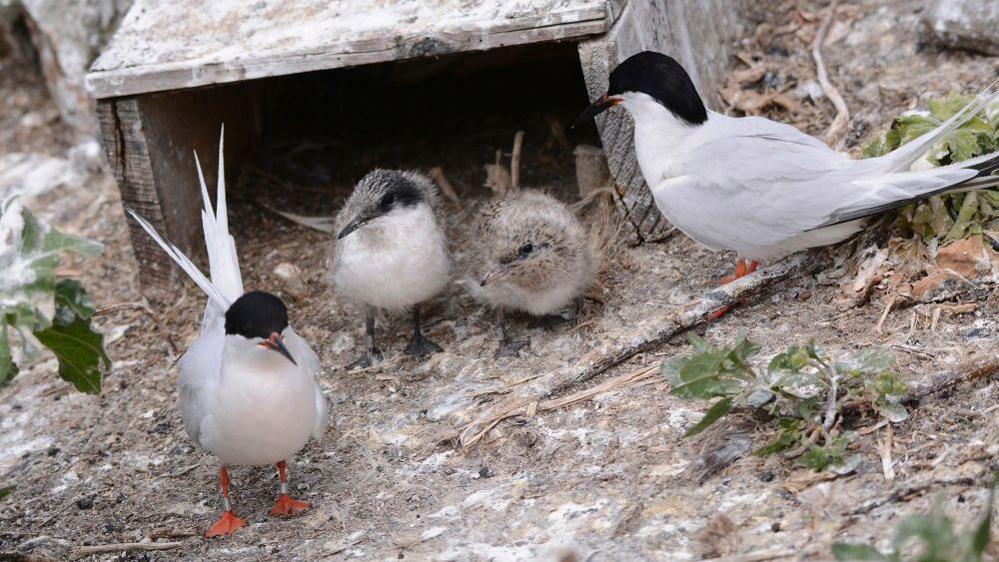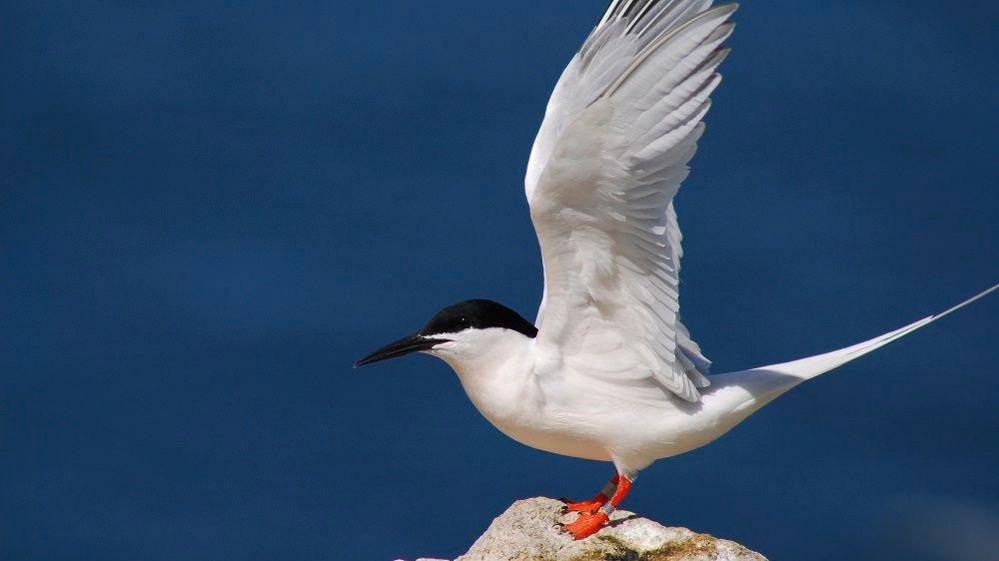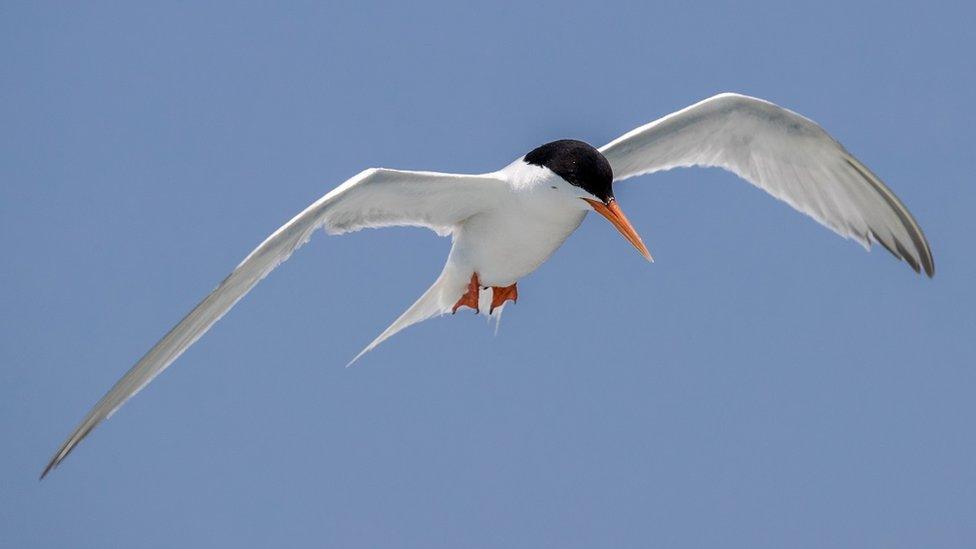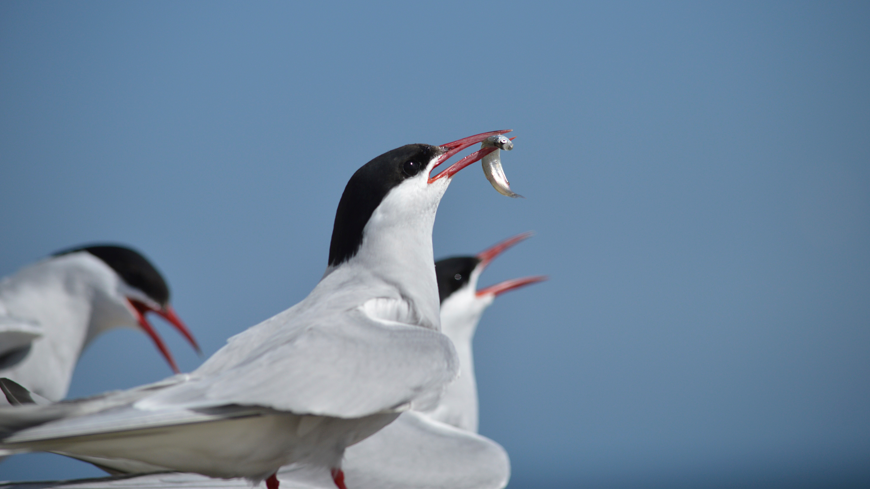Hopes UK's only roseate tern colony on mend

Roseate terns are at the highest level of conservation concern
- Published
A successful breeding season for a colony of one of the UK's rarest seabirds depleted by bird flu is giving conservationists "hope for the future".
Roseate terns on Coquet Island, off the Northumberland coast, saw a record number of 191 chicks hatched this year, with 92% going on to fledge.
The island hosts the only colony in the UK of the threatened species, which are ranked at the highest level of conservation concern.
But the RSPB said it was "too early" to say if it was a sign of recovery from the avian influenza of 2022 and 2023.
It is not known exactly how many died from the flu, but surveys revealed a 21% drop in the Coquet breeding since the outbreak.
The number of the birds returning to nest this year was also lower than in recent years.
The RSPB said the recovery process for the terns could take "many years" and the avian flu had "not gone away".

The RSPB is hopeful the UK's only colony is on the mend
Conservationists said the 276 adult roseate terns seen on the island this year hatched during or before 2022, when the disease first took hold on the island.
There is hope some of the birds managed to survive the virus, but it is also possible some did not catch it.
Stephen Westerberg, RSPB Northumberland coast site manager, said knowing the birds had "such a successful breeding" gave the team "great hope for the future".
"There are still a lot of unknowns though, and we could see outbreaks of avian influenza in subsequent breeding seasons on Coquet."
He added "surveillance and preparedness" for outbreaks was key.
Follow BBC North East on X, external, Facebook, external, Nextdoor and Instagram, external. Send your story ideas to northeastandcumbria@bbc.co.uk.
Related topics
- Published2 July 2022

- Published3 September 2024
